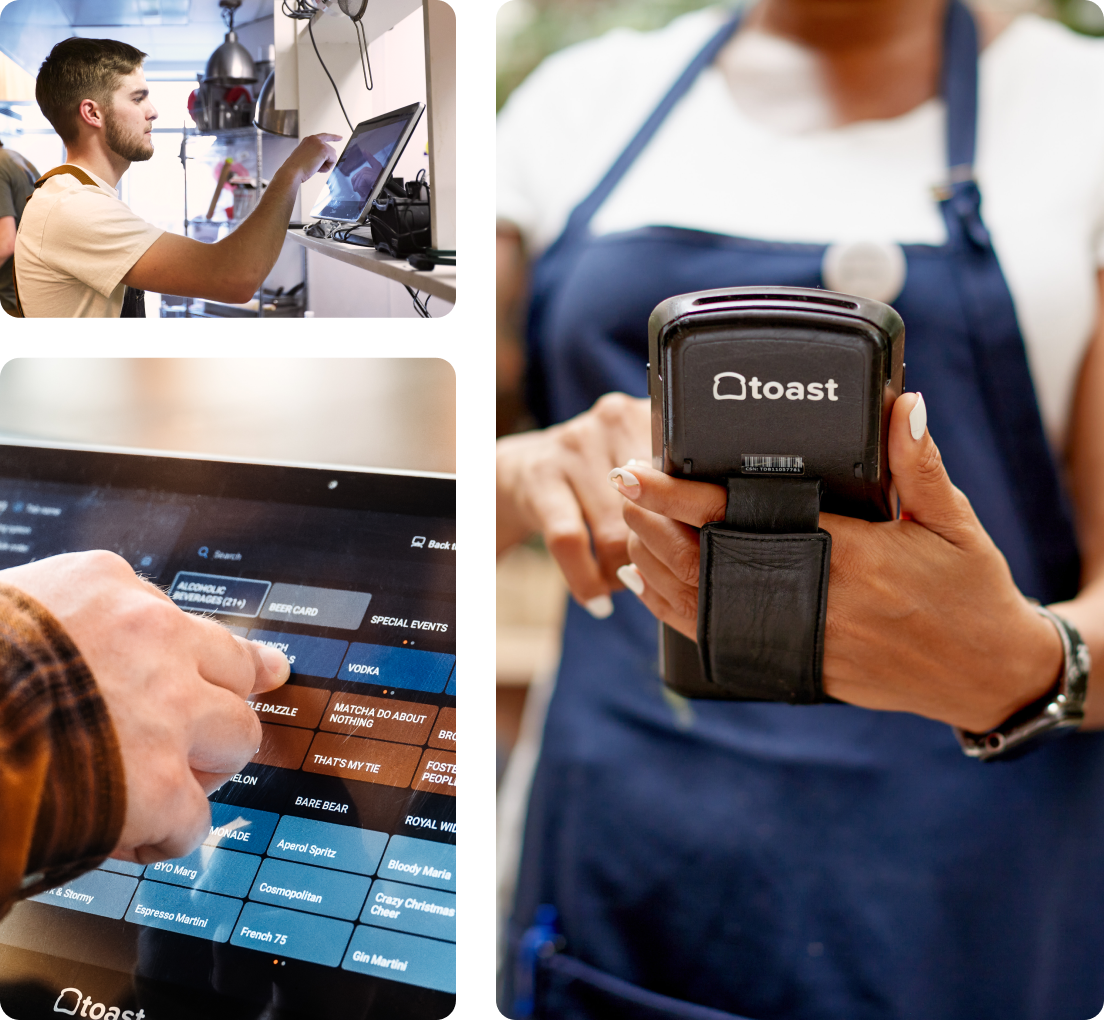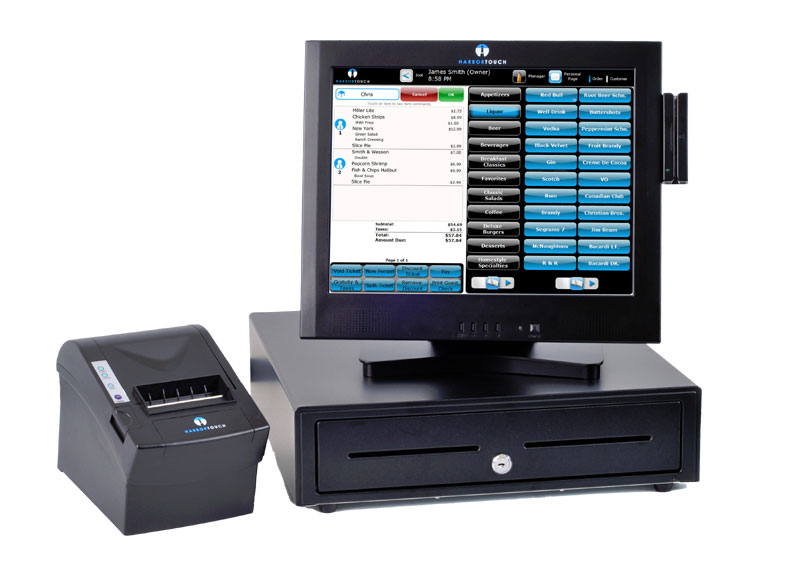Understanding Restaurant POS Software with real-time sales tracking
Comprehending the Relevance of POS Software in Modern Retail Workflow
In today's retail landscape, the role of POS software has ended up being significantly substantial. These systems have transformed from fundamental money signs up to complex tools that enhance numerous aspects of operations. They not only simplify deals however additionally offer understandings that can form service strategies. Understanding how these systems impact consumer experience and stock management is necessary for any type of merchant seeking to remain competitive. The implications of these advancements warrant further exploration.
The Development of POS Software: From Purchase Processing to Comprehensive Solutions

Enhancing Consumer Experience Via Advanced POS Includes

Streamlining Inventory Management With Integrated POS Systems
Integrated POS systems play a vital role in enhancing stock administration by automating processes that traditionally required significant hands-on initiative. These systems enable sellers to track inventory degrees in actual time, removing disparities that typically emerge from manual stock matters. With functions such as barcode scanning and automated stock replenishment alerts, organizations can preserve suitable supply degrees without overstocking or stockouts.Furthermore, incorporated POS systems help with exact forecasting by examining historic sales data, permitting merchants to make informed acquiring decisions. This predictive ability helps businesses adapt to transforming customer demands and seasonal fads more effectively.Additionally, the centralization of stock data across multiple sales networks boosts visibility, enabling merchants to handle their supply much more successfully. Inevitably, the integration of POS systems into stock administration streamlines procedures, reduces human error, and adds to raised earnings.
Real-Time Sales Tracking and Reporting for Informed Decision-Making

Precise supply management lays the foundation for reliable sales monitoring and coverage. Real-time sales tracking makes it possible for retailers to check sales performance as it occurs, giving instant insights into consumer purchasing patterns and patterns. This capacity enables services to respond quickly to fluctuations sought after, maximizing supply levels and decreasing overstock or stockouts.Moreover, incorporated POS systems assist in the generation of thorough reports, highlighting essential metrics such as sales by classification, period, and specific items. Such reporting abilities encourage stores to make data-driven decisions, recognizing effective methods and locations needing improvement.
The Duty of POS Software in Customer Relationship Monitoring
POS software plays a crucial role in enhancing client connection administration by allowing sellers to implement personalized advertising strategies. By analyzing consumer data, organizations can tailor promotions and communications to meet specific choices. Furthermore, these systems promote the growth of enhanced commitment programs that motivate repeat service and reinforce consumer interaction.
Personalized Advertising And Marketing Techniques
As merchants increasingly look for to boost customer commitment and engagement, personalized marketing techniques have arised as a vital part of reliable customer connection management. POS software plays an important role in this procedure by accumulating and evaluating customer information, allowing helpful resources sellers to tailor advertising and marketing efforts to specific choices and shopping behaviors. By leveraging understandings from acquisition histories, merchants can produce targeted promos and individualized interactions that reverberate with consumers, promoting a much deeper connection. In addition, the combination of POS software with customer partnership management systems permits seamless tracking of client interactions, making sure that advertising and marketing strategies stay relevant and prompt (Restaurant POS Software). This data-driven strategy not just boosts client satisfaction yet likewise drives sales and motivates repeat company, solidifying the store's market setting
Improved Loyalty Programs
Retailers are significantly identifying the value of commitment programs in promoting lasting customer relationships and improving overall engagement. POS software plays a crucial role in the development and management of these programs, allowing stores to track customer acquisitions, preferences, and habits successfully. By leveraging data analytics, organizations can create individualized benefits and incentives that resonate with individual clients, consequently raising engagement in commitment programs. Additionally, POS systems make it possible for seamless assimilation with mobile apps and digital systems, helping with easy access to incentives and promotions. This not just enhances customer satisfaction but likewise drives repeat company. Ultimately, POS software empowers stores to cultivate much deeper links with their clients, transforming periodic customers right into loyal clients with targeted and significant involvement approaches.
Incorporating POS Systems With Ecommerce Operating Systems for Omnichannel Success
To attain true omnichannel success, seamless integration in between point-of-sale (POS) systems and shopping platforms is crucial. This assimilation allows merchants to merge their inventory management, making sure that product schedule is precisely shown across both online and physical stores. Customers take advantage of a cohesive shopping experience, where they can quickly switch over between channels without coming across discrepancies.Furthermore, integrated systems promote real-time data sharing, allowing companies to assess client habits and choices much more successfully. This data-driven approach permits stores to customize advertising strategies and optimize stock degrees, inevitably boosting client fulfillment and driving sales.Additionally, the capability to procedure purchases throughout systems streamlines operations, lowering the threat of mistakes and enhancing total effectiveness. As stores significantly embrace omnichannel strategies, the assimilation of POS systems with e-commerce systems remains an essential consider achieving sustainable development and preserving affordable benefit in the dynamic retail landscape.
Future Patterns in POS Modern Technology and Their Influence On Retail Workflow
As retail operations advance, future patterns in POS technology are set to improve the landscape significantly. The increase of cloud-based options, advancements in mobile POS systems, and the benefits of AI integration are amongst the vital advancements prepared for to enhance efficiency and consumer experience. These developments assure to enhance processes and promote a more dynamic retail environment.
Cloud-Based Solutions Surge
With the enhancing reliance on modern technology, cloud-based POS options are transforming retail procedures by offering boosted flexibility and scalability. These systems enable stores to gain access to real-time information from anywhere, facilitating much better decision-making and client service. By leveraging cloud infrastructure, services can minimize ahead of time prices connected with software and hardware installations while ensuring seamless updates and maintenance. In addition, cloud-based services sustain multi-location monitoring, permitting retailers to synchronize you can find out more supply and sales throughout different outlets easily. This flexibility is essential in today's fast-paced market, where consumer preferences shift quickly. As more merchants take on these remedies, they can anticipate improved functional effectiveness and an extra receptive method to go to website market demands, inevitably improving customer fulfillment and commitment.
Mobile POS Innovations
The evolution of retail innovation proceeds to form operations, especially with the surge of mobile POS advancements. These systems enable stores to process deals anywhere within the shop, boosting customer interaction and simplifying checkout procedures. Mobile POS solutions enhance stock management by allowing immediate access to stock levels, helping personnel aid clients more effectively. Furthermore, they facilitate individualized purchasing experiences via integrated consumer information and commitment programs. As smart phones come to be progressively innovative, merchants are adopting features such as contactless payments and electronic receipts, in addition maximizing the acquiring trip. The change towards mobile POS not just enhances functional performance but likewise lines up with the expanding consumer preference for benefit, guaranteeing that sellers remain affordable in a rapidly evolving market.
AI Assimilation Advantages
AI combination represents a transformative jump in POS modern technology, using sellers a myriad of benefits that enhance operational performance and consumer experience. By leveraging equipment discovering formulas, sellers can analyze acquiring patterns and optimize supply management, decreasing waste and stockouts. Additionally, AI-powered analytics supply personalized advertising and marketing referrals, allowing targeted promotions that boost customer involvement and commitment. Furthermore, chatbots and virtual assistants enhance customer care, enabling quicker resolution of queries and boosting the overall shopping experience. Anticipating analytics can likewise anticipate demand fads, making it possible for smarter staffing and source allotment. Inevitably, the assimilation of AI in POS systems equips retailers to make data-driven choices, cultivating an one-upmanship in an ever-evolving retail landscape.
Often Asked Inquiries
What Are the Prices Related To Executing POS Software?
The costs connected with carrying out POS software can include software licensing fees, hardware expenses, installation charges, training costs, and continuous maintenance. Each factor contributes to the total financial investment required for a successful execution.
How Can Tiny Retailers Gain From POS Systems?
Little retailers can take advantage of POS systems through boosted deal effectiveness, streamlined stock monitoring, and boosted client insights. These systems make it possible for far better decision-making, ultimately leading to enhanced sales and customer satisfaction in open markets.
What Equipment Is Required for a POS System?
A typical POS system needs crucial hardware parts, including a touchscreen display, cash cabinet, barcode scanner, receipt printer, and payment terminal. These aspects interact to facilitate efficient transaction processing and stock monitoring for stores.

Can POS Software Be Personalized for Certain Retail Demands?
POS software can certainly be personalized to satisfy certain retail needs. Restaurant POS Software. This adaptability enables companies to tailor features, user interfaces, and reporting tools, boosting functional efficiency and giving an extra personalized experience for both staff and customers
How Secure Is Client Information in POS Systems?
The safety and security of consumer data in POS systems differs extensively. Many systems carry out file encryption, secure accessibility controls, and regular updates, yet vulnerabilities can still exist, necessitating ongoing vigilance and proactive measures from stores to shield sensitive information.